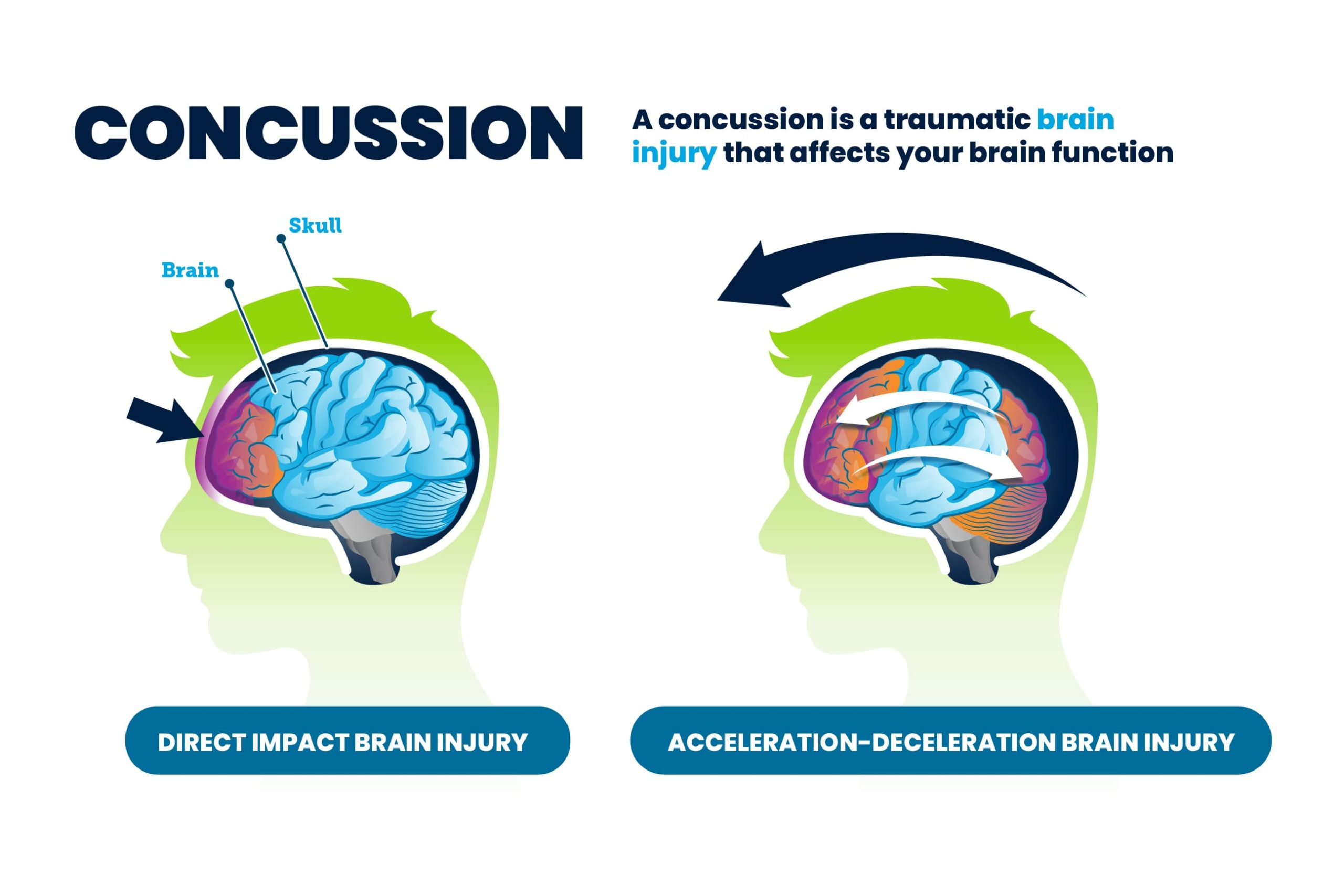Concussions are some of the most common injuries observed after a collision injury. Signs of a concussion usually are observed soon after an injury, but some symptoms that may be more concerning may not develop for a few days, including:
It’s best to get checked early as concussions can develop blood clots which if left undiagnosed and untreated could be fatal.

Concussions are a type of traumatic brain injury (TBI) that are a common accident injury caused by a hitting the head on an object or whipping the head back and forth. A concussion, while considered a minor TBI, can have serious effects.
If you’ve recently been involved in an auto accident and think you may have a concussion, visit one of our 27 locations throughout Central Florida, Brevard, Polk and Hillsborough counties.

Don’t wait to get evaluated if you’ve experienced head trauma from a car accident — get in touch with Complete Care for comprehensive, quality concussion treatment in Central Florida. With 27 convenient locations throughout the region, we offer same day and walk in appointments so you can get seen quickly.